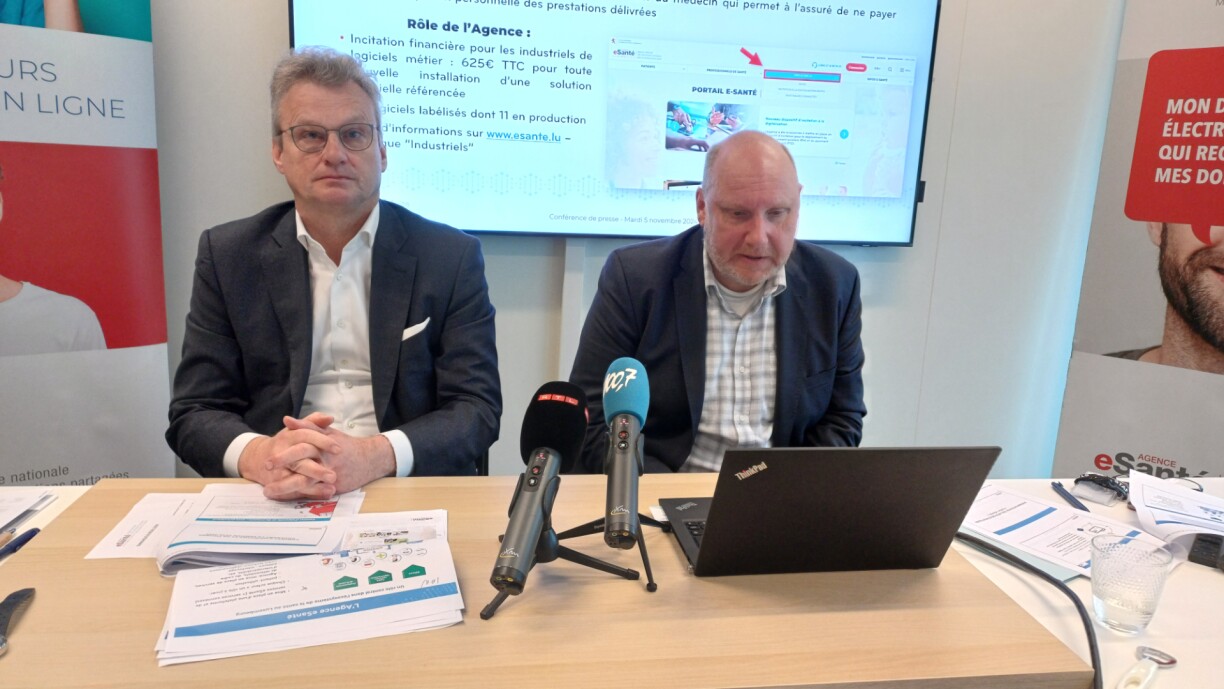
During a press conference on Tuesday, Ian Tewes, director of the E-Santé Agency, announced that 200,000 patients are now able to actively access their E-Santé accounts, which provide access to their electronic medical files.
E-Santé facilitates several programmes, including the Immediate Direct Payment (PID) and Accelerated Reimbursement (RA) schemes. Tewes highlighted that 500 medical professionals in Luxembourg are currently participating in these initiatives. The PID scheme, in particular, allows patients to avoid upfront costs, as they only need to pay the portion of the bill not covered by the National Health Fund (CNS). He added that medical professionals interested in utilising PID must set up an account.
To support the digital transition, software developers installing compatible systems in doctors’ offices are eligible for a subsidy of €625 per doctor, provided that the software is actively used. E-Santé representatives noted that there remains untapped potential among medical professionals. Marc Hostert, president of E-Santé, indicated that there are approximately 3,000 doctors in Luxembourg, although many work in hospitals.
On Monday, it was announced that the CNS and the Luxembourg Association of Doctors and Dentists (AMMD) have reached an agreement regarding the Digital Health Network (DHN), resolving years of dispute. However, journalists seeking further details from the agency responsible for advancing digitalisation in Luxembourg’s healthcare sector were left disappointed, as E-Santé representatives stated that additional questions should be directed to the CNS.
Alongside the 200,000 individuals with E-Santé accounts, 2,700 medical professionals also have access. These accounts allow patients to actively view their electronic medical files (Dossier de soins partagé/DSP).
According to Tewes, the number of users has nearly doubled since the summer. He attributes this growth to an increasing number of doctors who now store medical images electronically rather than on CDs. Additionally, many paediatricians are utilising the DSP to manage electronic vaccination records. Over the past year, E-Santé has recorded an increase in electronic vaccination records from 27,000 to 46,000, with expectations of further growth as hospitals begin to request access.
Currently, there are 1.2 million electronic medical files in Luxembourg, surpassing the population due to the inclusion of cross-border workers insured through the CNS. More than 13 million documents are stored in these electronic medical files. However, 35% of them are empty, typically belonging to individuals who are not currently ill. Tewes emphasised, “The DSP is for everybody, but it is mainly of interest to those who are ill.”
It is worth noting that all individuals insured through the CNS in Luxembourg have an electronic medical file, though not everyone has access, as activation is required. Those who wish to opt out of having an electronic medical file must submit a request for deactivation, a process that has been initiated by only 0.18% of insured individuals.
To activate an E-Santé account, it is recommended to contact the E-Santé helpdesk for assistance.